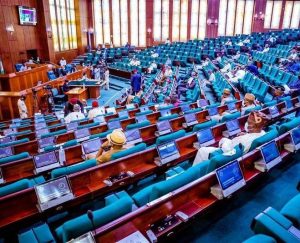
The Minority Caucus of the House of Representatives has strongly criticized the recent increase in electricity tariffs across Nigeria, labeling it as inhuman and evil.
In a statement released on Friday, the Minority Leader of the House, Kingsley Chinda, called upon the Federal Government to intervene and request the Nigerian Electricity Regulatory Commission (NERC) to cancel the approved tariff increment.
Effective from April 1, 2024, the NERC authorized a 300 percent tariff hike for Band A consumers, allowing power distribution companies to raise electricity prices for urban residents from N68 to N225 per kilowatt-hour. Chinda emphasized the urgent need for President Bola Tinubu to intervene and prioritize the welfare of the people by urging NERC to reconsider its decision.
The statement stressed the importance of transparent dialogue and inclusive decision-making processes to address the underlying issues plaguing the energy sector. The Minority Caucus emphasized the significance of sustainable solutions that benefit all stakeholders, rather than consistent and persistent tariff increases. They also called for increased accountability and transparency in resource management within the electricity sector, advocating for efficient service delivery and fair pricing mechanisms that align with the economic realities faced by citizens.
The caucus criticized the tariff hike, which exceeds the inflation rate by over 200 percent, for disregarding the plight of ordinary citizens already grappling with the removal of oil subsidies, rampant inflation, unemployment, and inadequate access to essential amenities. They disputed NERC’s claim that the hike only affected a small percentage of electricity consumers, asserting that it impacted all consumers based on data provided by the distribution companies (DISCOS). Such deceitful practices erode public trust and confidence in the government.
Furthermore, the timing of the tariff hike, amid the prevailing economic challenges, was deemed insensitive and detrimental to the well-being of Nigerians. The minority caucus highlighted the disconnect between policymakers and the realities faced by the masses. They emphasized that in other countries, governments strive to protect the interests of their citizens during challenging times, citing examples such as the United Kingdom’s energy subsidies to support households and businesses coping with increased power bills.
The statement also drew attention to the disparity in Nigeria, where the government’s spending lacks tangible economic impacts on households or the lives of ordinary citizens. It contrasted the lack of substantial support with other nations, such as the United States, where the government offers tax credits to subsidize the cost of electric vehicle chargers.
The Minority Caucus denounced the recent electricity tariff hike as inhumane and called for immediate government intervention to address the concerns of the Nigerian populace. They urged policymakers to prioritize the welfare of citizens, ensure fair pricing, and work towards sustainable solutions within the energy sector.

